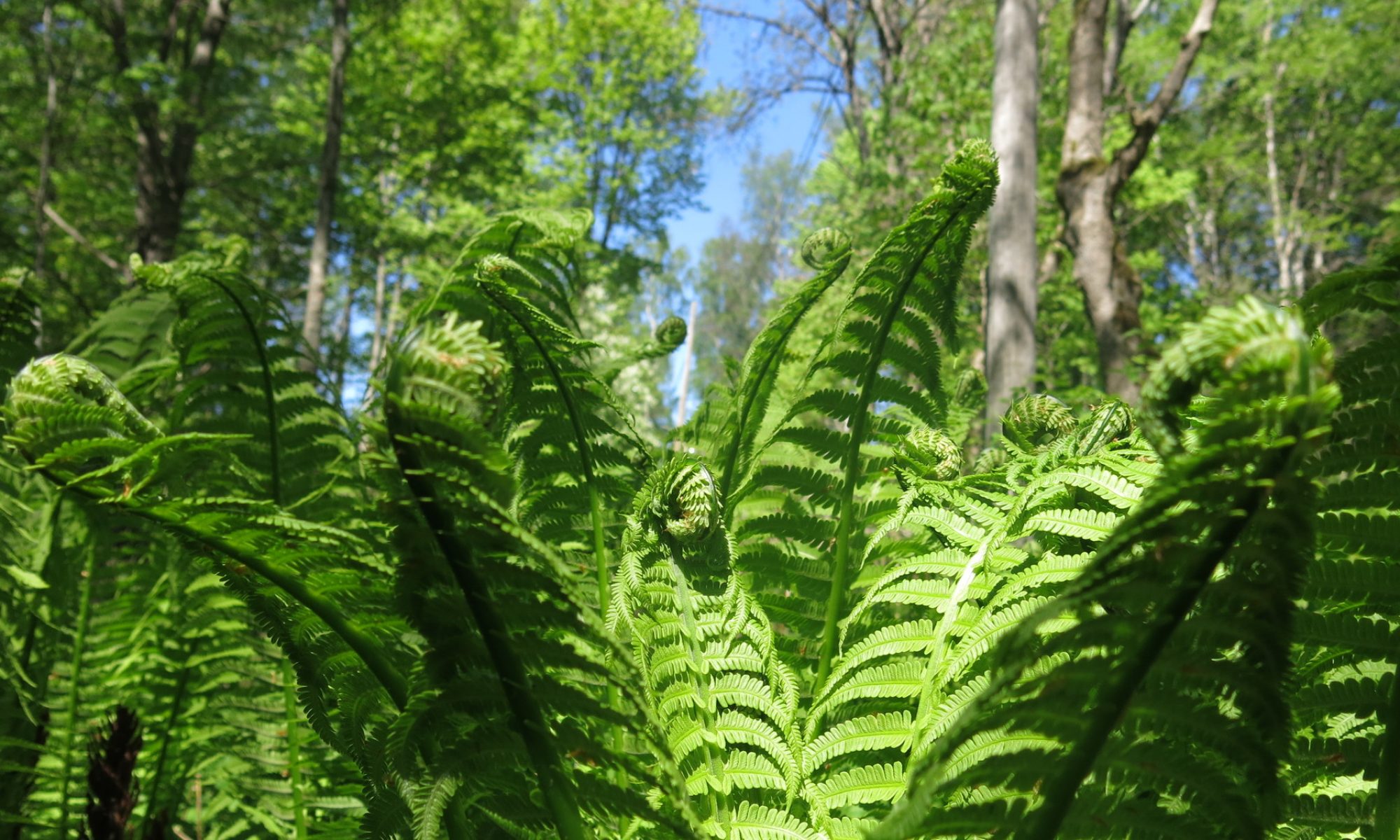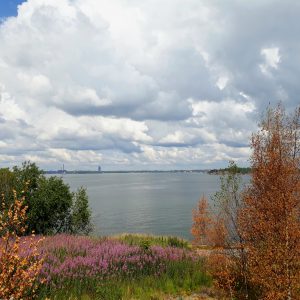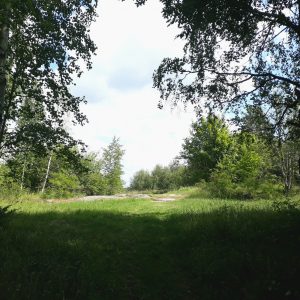Text by Anni Kaila
“Sometimes, if you just look to the trees, you can see that there are also quiet ways of communicating, and of resisting.”
We are on a course where artists and scientists are looking for ways to combine their efforts in the fight against the climate crisis, and now artist Mari Keski-Korsu is giving us a different perspective on active resistance. She is introducing us to the ancient Finnish tradition of whisking (vihdonta), which pretty much every single Finn has engaged in at some point in their lives but hasn’t necessarily given too much deep thought to.
We’ve come to a small clearing in the middle of the forest in the centre of Vallisaari. It is startling how close to the sanded paths and ice cream bars a very different kind of community exists, one of birches, pines, spruces and rowans. As we walk, Mari prompts us to look to our feet – twenty people can make quite an impression in the soft moss and fragile lichen sprawling on the rocks. We sit down and Mari explains briefly how she has come to give workshops like these. She says that even as a child she felt drawn to the woods, calling it simply ‘sitting in the forest’. Now she asks us to do the same, to find a tree that we feel speaks to us, ask permission from it, and lean our upper backs against its trunk, inhaling and exhaling together with the tree.
After some time we return to the clearing and Mari explains the process of gathering branches for the whisks. We are to choose a type of tree that we feel drawn to, then gather about 30 to 40 branches without taking too many from one single tree and without wounding the tree unnecessarily. We pair off and head into the woods with our knives in hand. With my partner we choose the rowan, which I later hear symbolises home and womanhood and is also used for bringing groups of people closer to each other. Birch, the most traditional of whisk trees, is good for muscles and circulation, while a powerfully healing whisk can be made with branches collected from trees that have been struck by lightning.
After gathering up the branches we trim them and make them into whisks, using string to tie the bundles together.
In the sauna, Mari, clad in a red dress and a sauna hat, casts a spell to rid the sauna of any evil spirits that might obstruct the healing effects of the whisking. She instructs us to dip our whisks in the cold water and hold them against our faces to be able to breathe easily even in the hot sauna air. The rowan’s smell is intoxicating, both slightly sweet and bitter. We stay in the heat for quite a while to prepare ourselves for the whisking.
The trees are still very young and their leaves soft and fresh. They emit a strong scent, but don’t hold up as well as whisks made from branches collected closer to midsummer. As we gently strike our skin with the whisks, starting from the legs and continuing the motion upwards, always towards the heart, some leaves stick to our skin and scatter around the sauna. Leaving the heat, I can feel a slight tingle. Even after I plunge into the cold sea water, the warmth stays on, as if the trees were still stroking my skin.



 The nature had recovered quite well from our camping activity; grasses were growing tall at the tent site and the pathways we created were being overgrown by weeds.
The nature had recovered quite well from our camping activity; grasses were growing tall at the tent site and the pathways we created were being overgrown by weeds.